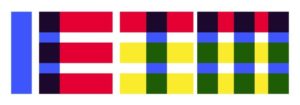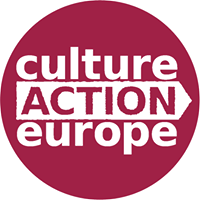The documents and links, collected and assembled since last year, are describing the current status of the performing arts in European countries. They are formed like a bibliography and cover the following topics:
- Artists searching for cooperation and work opportunities in other European counties,
- Information centres and theatre institutes which research and compile information for artists.
- Cultural-political networks using this material to develop arguments for the promotion of the performing arts,
- Academic institutions searching for sources about the situation of the performing arts in Europe.
The documents and links have been split into five areas:
- Information about national cultural politicians and the promotion of culture, presentation of the cultural landscape
- The existing structures within the cultural landscape of the performing arts: institutions / festivals / projects / promotion
- The social situation of artists (income, professional status, life circumstances)
- Mobility (forms of and opportunities for mobility, promotion, barriers to mobility)
- Social debate and aesthetic developments
Three research areas are available:
This research was initiated by the Flanders Arts Institute, Brussels, and ITI Germany (as member of the European Network of Information Centres for the Performing Arts / ENICPA).
Funded by the Federal Government Commissioner for Culture and the Media, a large part was completed in workshops of the European Secretariat of German Culture NGOs, with associations of independent performing artist from various European countries, the Federal Association of the Performing Arts (Bundesverband Freie Darstellende Künste), as well as members of Project Passage 23E.
In the coming weeks, ENICPA members and relevant networks and institutions are invited to contribute further information.
Please contact the board of ENICPA to take part.
 Ása Richardsdóttir will take over the position of IETM’s Secretary General from the 1st of February 2019.
Ása is currently the director of Ice Hot Reykjavík 2018, the biannual Nordic Dance Platform, project ambassador for the Nordic Culture Fund, and a long-standing member of IETM.
Nan van Houte will remain Secretary General until the 1st of March 2019, and the network will bid her farewell during the IETM Spring Plenary Meeting 2019.
Read the complete IETM press release here
Ása Richardsdóttir will take over the position of IETM’s Secretary General from the 1st of February 2019.
Ása is currently the director of Ice Hot Reykjavík 2018, the biannual Nordic Dance Platform, project ambassador for the Nordic Culture Fund, and a long-standing member of IETM.
Nan van Houte will remain Secretary General until the 1st of March 2019, and the network will bid her farewell during the IETM Spring Plenary Meeting 2019.
Read the complete IETM press release here
 Ása Richardsdóttir will take over the position of IETM’s Secretary General from the 1st of February 2019.
Ása is currently the director of Ice Hot Reykjavík 2018, the biannual Nordic Dance Platform, project ambassador for the Nordic Culture Fund, and a long-standing member of IETM.
Nan van Houte will remain Secretary General until the 1st of March 2019, and the network will bid her farewell during the IETM Spring Plenary Meeting 2019.
Read the complete IETM press release here
Ása Richardsdóttir will take over the position of IETM’s Secretary General from the 1st of February 2019.
Ása is currently the director of Ice Hot Reykjavík 2018, the biannual Nordic Dance Platform, project ambassador for the Nordic Culture Fund, and a long-standing member of IETM.
Nan van Houte will remain Secretary General until the 1st of March 2019, and the network will bid her farewell during the IETM Spring Plenary Meeting 2019.
Read the complete IETM press release here

 The European Secretariat of German Culture NGOs organizes a CAE German Hub meeting on 7th and 8th of November in Berlin. Representatives from Germany based CAE member organizations, experts and culture politicians will discuss with CAE Secretary General Tere Badia the CAE Appeal for the European Elections 2019, fresh outcomes from the BTO-conference in Bucharest and cultural perspectives to the German EU presidency 2020.
The European Secretariat of German Culture NGOs organizes a CAE German Hub meeting on 7th and 8th of November in Berlin. Representatives from Germany based CAE member organizations, experts and culture politicians will discuss with CAE Secretary General Tere Badia the CAE Appeal for the European Elections 2019, fresh outcomes from the BTO-conference in Bucharest and cultural perspectives to the German EU presidency 2020.  Mobility Information Points (MIP) are information centres and/or websites in several European countries, and one in the USA, who aim to tackle administrative challenges that artists and cultural professionals can face when working across borders. Relevant issues can be around visas, social security, taxation, customs etc.
Mobility Information Points (MIP) are information centres and/or websites in several European countries, and one in the USA, who aim to tackle administrative challenges that artists and cultural professionals can face when working across borders. Relevant issues can be around visas, social security, taxation, customs etc. Culture Action Europe’s upcoming annual Beyond The Obvious conference is entitled ctrl+shift HUMAN: Arts, Sciences and Technologies in Code Dependent Societies and will take place in Timisoara, Romania from 25 to 27 October, 2018. This will also include Culture Action Europe Members’ Forum and Annual General Meeting. CAE will bring together various experiences and practices from the fields of arts and culture, sciences, technologies, activisms, theory and politics, to explore possible cross-disciplinary answers and diverse actions towards the challenging relations between Technology and Humans. How to keep our humanity in this and find new forms of sense making in a post productive and global society? What are the new models in those relations, and which role does culture, the arts and education play? Are our institutions ready for it, aware of their new role? Which organizations and policies are needed to foster alternative, transsectorial and intercultural competences?
Culture Action Europe’s upcoming annual Beyond The Obvious conference is entitled ctrl+shift HUMAN: Arts, Sciences and Technologies in Code Dependent Societies and will take place in Timisoara, Romania from 25 to 27 October, 2018. This will also include Culture Action Europe Members’ Forum and Annual General Meeting. CAE will bring together various experiences and practices from the fields of arts and culture, sciences, technologies, activisms, theory and politics, to explore possible cross-disciplinary answers and diverse actions towards the challenging relations between Technology and Humans. How to keep our humanity in this and find new forms of sense making in a post productive and global society? What are the new models in those relations, and which role does culture, the arts and education play? Are our institutions ready for it, aware of their new role? Which organizations and policies are needed to foster alternative, transsectorial and intercultural competences?